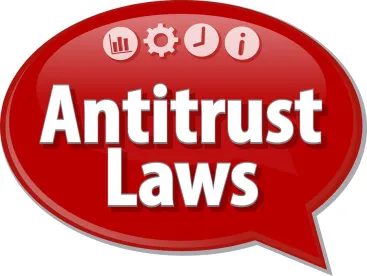In testimony before the Senate Subcommittee on Antitrust, Assistant Attorney General Makan Delrahim from the US Department of Justice (DOJ) and Chairman Joseph Simons from the US Federal Trade Commission (FTC) staked out differing interpretations of when antitrust considerations are relevant in standard setting agreements restricted by fair, reasonable and non-discriminatory (FRAND) rates, a rare divergence of opinion between the two antitrust enforcement agencies.
WHAT HAPPENED:
-
Since AAG Delrahim took over as head of the DOJ Antitrust Division in September 2017 he has consistently hinted at a differing interpretation of antitrust law as it relates to standard essential patents and FRAND rates in the context of antitrust.
-
Standard essential patents (SEPs) are patents that have been incorporated into a standard by a standard setting organization and industry participants to facilitate interchangeability between products. Often, to be included in a standard, patent holders agree to license a patent essential to that standard at a FRAND rate.
-
With the proliferation of standards, more scrutiny has been devoted to SEPs and FRAND rates, and some companies have brought antitrust suits relating to “patent hold-up” or the refusal to license a patent on FRAND terms (typically seeking higher royalties or fees on patents for widely adopted standards).
-
In testimony on October 3, 2018, AAG Delrahim indicated his view was that a patent holder’s unilateral decision not to license a patent—even if that patent is part of a standard—is not conduct intended to be reached by the antitrust laws. AAG Delrahim indicated such a dispute would more appropriately be handled by contract law.
-
This position differs from that of the FTC, where Chairman Simons has indicated that antitrust law can be relevant in patent hold-up cases.
-
The FTC demonstrated its view in a recent complaint filed against Qualcomm, Inc. The complaint summarizes the patent hold-up concern:
-
Once a standard incorporating proprietary technology is adopted, the potential exists for opportunistic patent holders to insist on patent licensing terms that capture not just the value of the underlying technology, but also the value of standardization itself. To address this “hold-up” risk, [standard setting organizations] often require patent holders to disclose their patents and commit to license standard-essential patents (“SEPs”) on fair, reasonable, and non-discriminatory (“FRAND”) terms. Absent such requirements, a patent holder might be able to parlay the standardization of its technology into a monopoly in standard-compliant products.
WHAT THIS MEANS:
-
Going forward, US antitrust enforcement with respect to SEP issues may be limited to the FTC. AAG Delrahim’s speeches indicate that it will be the rare case that the Antitrust Division pursues such cases in the future.
-
This divergence between the two US agencies responsible for enforcing antitrust laws will create confusion for SEP holders and their licensees with respect to the risks of US government intervention. Companies dealing with SEPs and FRAND rates will want to be cognizant of which agency is reviewing, as approaches may be different.
-
While there may be divergence in the US government agencies that enforce the US antitrust laws, the Antitrust Division’s new policy has no impact on the body of case law developed by US courts over the years with respect to SEPs and antitrust liability. Private parties seeking to enforce their rights with respect to SEPs and antitrust law in US courts should not be impacted by the Antitrust Division’s change in policy.




 />i
/>i

